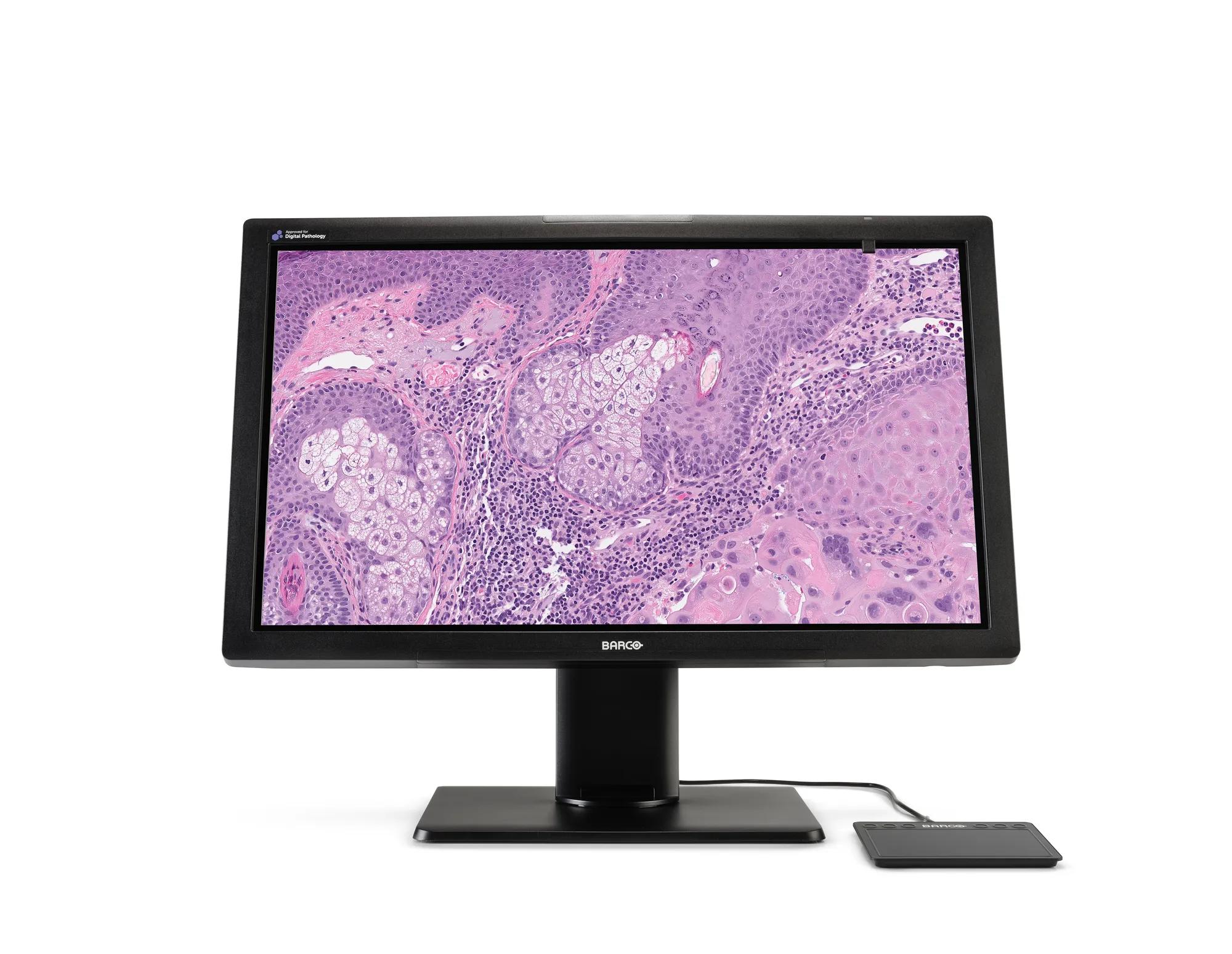What is digital pathology?
HEALTHCARE 1 min read
If we say ‘pathology’, you might imagine a setting a bit like this: a well-lit lab with white desks, microscopes and storage cupboards. White-coated, focused men and women are working steadily on, gently handling rectangular glass slides, bending over microscopes or making notes in patient files.
Okay, keep that image in your mind. What do you imagine if we now say ‘digital pathology’?
If you’re adding laptops with electronic patient records to the same scene, you should know that digital pathology entails more than that. Much more.
Digital pathology is not just about making paperwork digital. It affects the entire diagnostic process. Digital pathology means that tissue slides themselves are turned into digital images and analyzed on a display. For this, a lab needs specialized equipment, such as scanners, to create these images and display them to the pathologists.
You might now be thinking: ‘Why bother with all that?’ Well, digital images open up a whole lot of advantages for pathologists. A big one is that it’s possible to view the exact same slide at multiple places at the same time. So if you need to discuss a case with a colleague, you can do so while you’re both watching the same image. In the same lab … or even in remote ones. It saves you the hassle and risks of having to pay to physically ship slides and wait for them to arrive.



